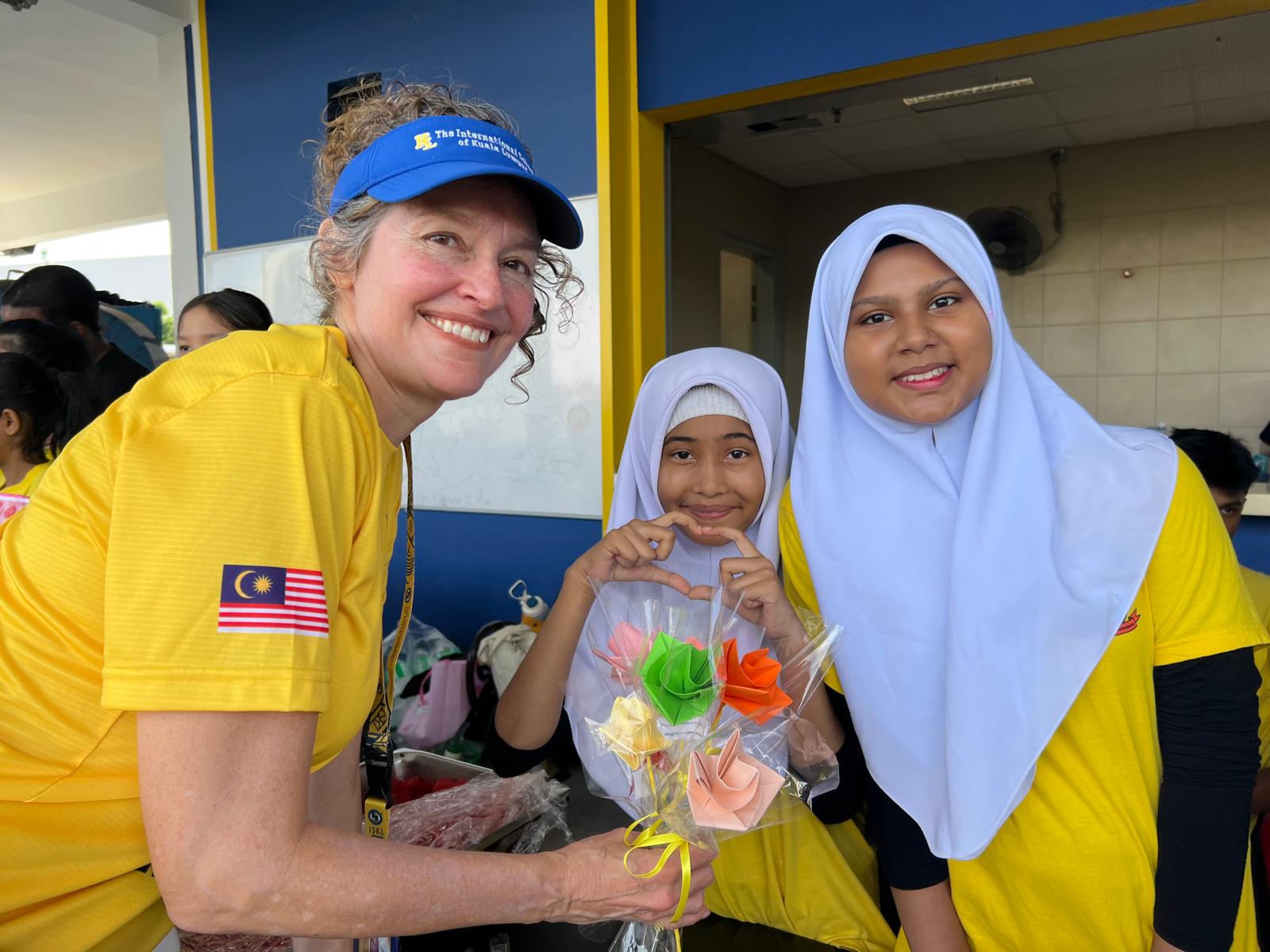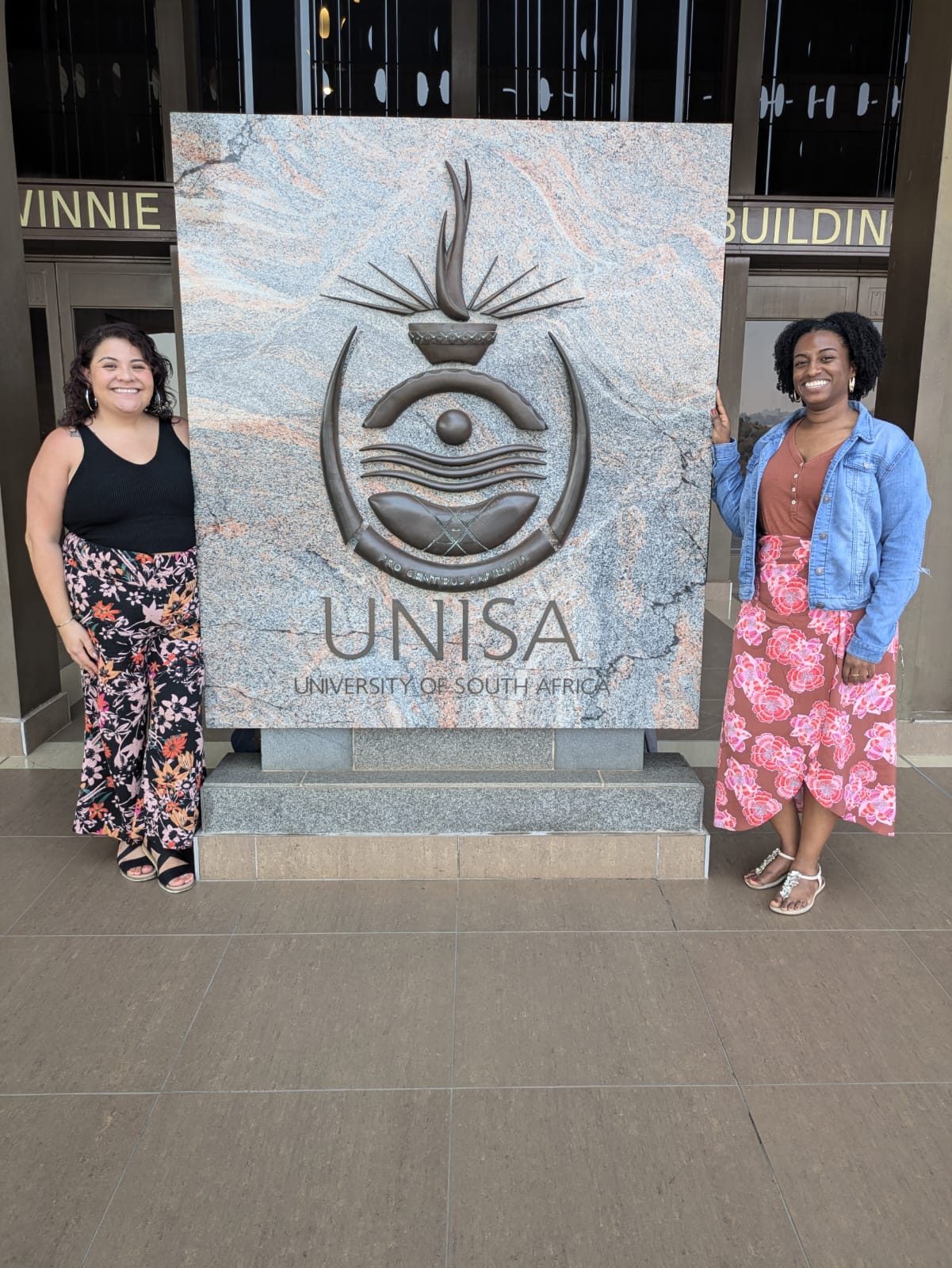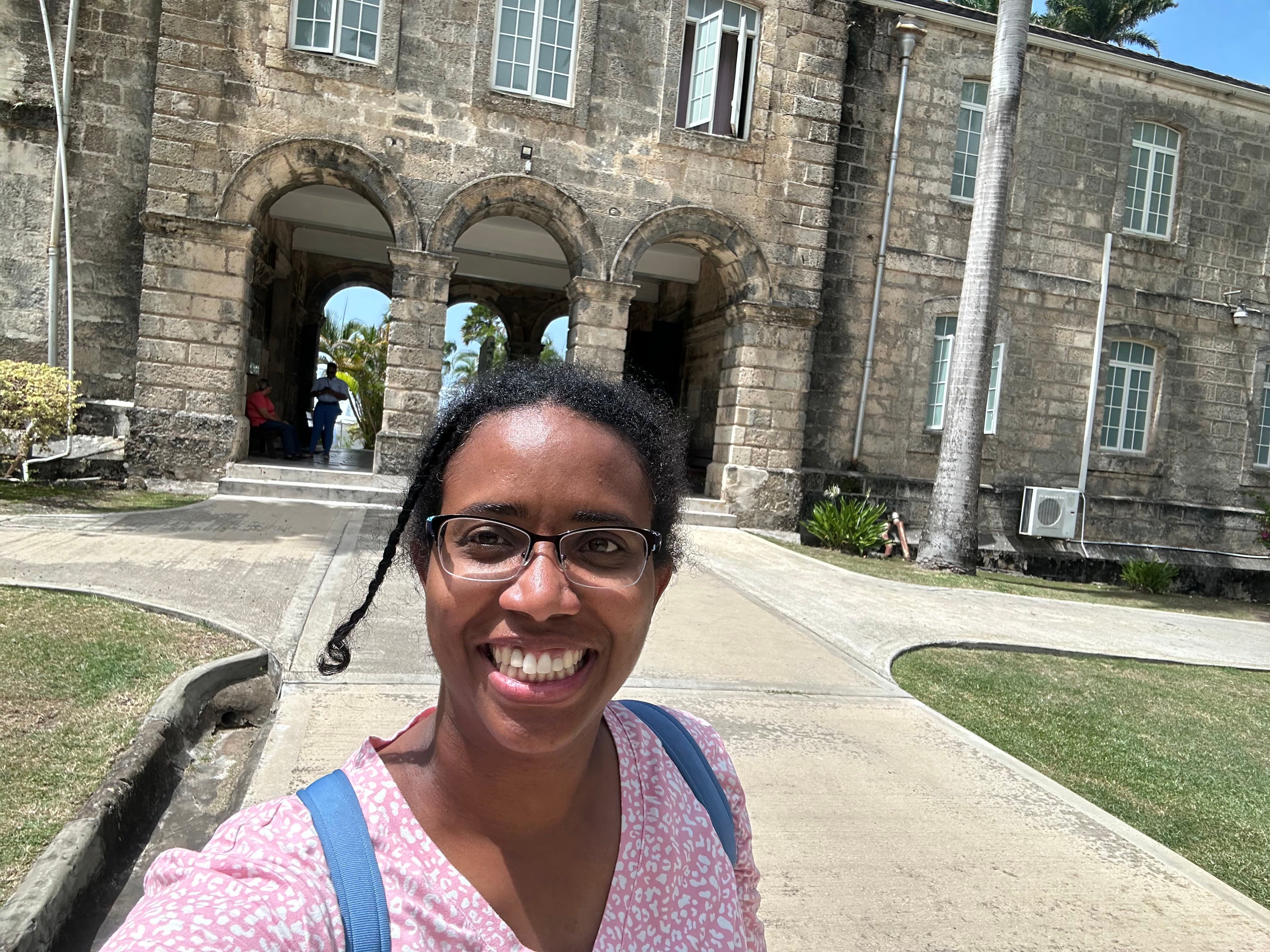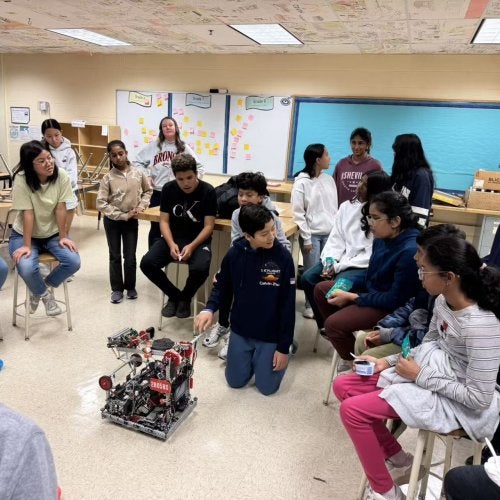From Malaysia to South Africa to Barbados, Fulbright scholars from the University of Maryland College of Education are exploring refugee education, women’s well-being and young people’s political and civic attitudes. Follow how three EdTerps are examining cultural and educational issues abroad.

Colleen O’Neal, Kuala Lumpur, Malaysia
An associate professor of school psychology, Colleen O’Neal has received three Fulbright Scholar Awards over 14 years. She partners with refugee organizations to provide support programs for teachers and students who are Myanmar, Pakistani and Somali refugees living in Malaysia. Malaysia does not give education or employment rights to its refugee population of almost 200,000 people, according to O’Neal. Refugees in Malaysia are not allowed to attend school or seek any formal K-12 or college education, she explained. Instead, they must pursue education in informal, unofficial learning centers, where most teachers are refugees themselves.
“Our partnership with local Malaysian refugee advocacy organizations, refugee schools and universities has supported the training of and consultation with teachers who are refugees,” said O'Neal, “especially around helping each other feel confident they can meet the socioemotional and behavioral needs of their refugee students.”
Her 2023–24 Fulbright focused on secondary educators and students who are refugees in Malaysia. The research involved interviewing the small number of refugees who have the opportunity to attend informal secondary school taught by young, recent secondary school graduates who are also refugees. “The interviews focused on how the students did the impossible—stayed motivated to complete secondary school despite not being allowed to go to college in Malaysia,” said O’Neal.
Preliminary results suggest that an extensive system of support helped them persist, especially from their parents and teachers. The students also felt proud of their own persistence in pursuing their goals. O’Neal shared, “Not only did the refugees express awe about what they learned, their dreams and opportunities, but I also experienced awe in seeing their persistence and the entire ecological system of supportive people who helped them achieve their goals.”
O’Neal acknowledged the role that humanitarian organizations like World Vision played in supporting her work. “[World Vision] oriented me to the whole world of different marginalized groups [in Malaysia],” explained O’Neal. “That cultural broker was really necessary to open doors and give me an orientation to the secret life of [refugees in] Kuala Lumpur.”

Di-Tu Dissassa, South Africa
For Di-Tu Dissassa Ph.D. ’24–who recently earned her doctoral degree in higher education, student affairs and international education policy, student affairs concentration, and is a project coordinator in the College of Education’s Center for Diversity and Inclusion in Higher Education–receiving a Fulbright Scholar Award was an opportunity to gain a global perspective.
“For me, this [is] a time to ground myself and move into the next level,” explained Dissassa, “a transition time from me being a student to being in the faculty realm.”
Moving from the Midwest to Maryland to pursue her doctoral degree exposed Dissassa to a larger and more diverse student body. She was also able to delve deeper into complex conversations surrounding race, power and privilege, something she was not able to explore earlier in her education experience.
“I think the main thing I got out of my experience at [the UMD] College of Education was a way to really think about education in a different context than what I grew up experiencing,” she said.
In her previous research roles in resident life and student affairs, Dissassa analyzed the impacts of burnout in high-stress work environments. Similarly, Dissassa’s Fulbright research analyzes how women of color cultivate occupational wellness, a balance between leisure and formal professional careers that promotes health, well-being and personal satisfaction.
Dissassa said that her Ethiopian grandmother was a pivotal figure in her decision to study occupational wellness in Africa, particularly due to the matriarch’s dexterity in managing stressful experiences while also balancing familial responsibilities.
Her research centers around the relationship of Black women in South Africa to care work, or work that caregivers do to support the needs of other people, both in personal and professional spheres.
“Especially in sub-Saharan Africa, [women] do a lot of care work, which is something a lot of men don’t really have to think about, and we can see that in their career trajectories,” Dissassa shared. “I wanted to elevate the voices of all women.”

Stephanie Bent, Barbados
Stephanie Bent, who grew up in Jamaica, found that her Fulbright studies brought her closer to home. Her research centers on racial power dynamics in Barbados, the lasting effects of colonialism on the island and the attitudes of the younger generation of Barbadians toward political and civic issues in the country.
Barbados gained independence from the United Kingdom in 1966 and officially became a republic in 2021, when it cut ties with the British monarchy and inaugurated its first president. Bent, a P.h.D student in higher education, student affairs and international education policy, student affairs concentration, explained that her research combines both her professional and personal interests in student life and student affairs. Her work focuses on young people ages 18 to 25.
“Barbados really seemed like an ideal location to study how decolonization is taught and what young [people] think about it,” shared Bent.
Due to the lack of large political protests and low voter turnout, some researchers have misconstrued Caribbean youth as apathetic to political change; however, Bent explained there is more than meets the eye.
“On the surface, looking at these markers, it is saying that youth are politically disengaged, but … research [indicates] they have an interest in civic involvement,” said Bent.
Bent, who was cohosted by the Office of Reparations and Economic Enfranchisement within the Division of Culture, and the Department of History and Philosophy at the University of the West Indies at Cave Hill, Barbados, wants to focus on a uniquely Caribbean solution to anti-Black racism by engaging young generations. Her research suggests the younger Barbadian population show interest in rewriting the colonial history of the nation, especially those involved in artistic movements.
Bent is conducting interviews and discussions with young people to determine which participants are racially conscious, what their sources of information are, and if they are able to get their message across.
Top photo: Di-Tu Dissassa (left) visits fellow Fulbright scholar Stephanie Bent in Barbados.


